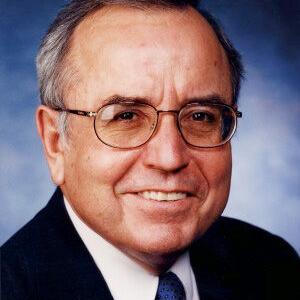ONE CYR’S VIEW: “JFK and Our World Today”

The President of the United States travels to Texas to mitigate factional strife in his Democratic Party, and on November 22, 1963 is gunned down on a Dallas street. Two days later, alleged assassin Lee Harvey Oswald is shot by hustler Jack Ruby.
JFK’s majestic November 25 funeral, planned in detail by wife Jacqueline, provides no closure. American government has been fundamentally shaken. Oswald’s televised murder precludes a trial, and greatly encourages conspiracy theories.
Fascination with and controversy about President Kennedy continues. In 2013, floods of books, articles and commentaries marking the half-century since his death.
Kennedy’s legacy is complex, including publicized shortcomings. Eric Sevareid of CBS noted that the main legacy might be “an attitude,” a spirit that all things are possible for Americans.
In fact, JFK had major achievements. They include arms control, the Peace Corps, space exploration.
Nonetheless Sevareid was perceptive in emphasizing the emotional dimensions of political leadership.
The early disastrous invasion of Cuba at the Bay of Pigs undercut Kennedy, and provided Soviet Premier Nikita Khrushchev strong incentive to deploy nuclear missiles on the island. Intense, vastly expanded U.S. efforts to kill Fidel Castro further spurred Moscow.
This led to the Cuban Missile Crisis of October 1962. President Kennedy, a World War II combat veteran, resisted powerful pressure to invade Cuba. The missiles were removed following a blockade and overt invasion preparations, combined with a secret Cuba-Turkey missile trade. Kennedy’s restraint and imagination are extremely impressive.
In the aftermath of the missile crisis, Kennedy and Khrushchev achieved a treaty banning nuclear tests in the atmosphere, a breakthrough. The Senate ratified the treaty with a bipartisan vote of 80-19. JFK had other success with Congress, including negotiation authority key to the 1967 Kennedy Round trade agreement, and successor Tokyo and Uruguay accords.
Two prominent domestic issues were civil rights and organized crime, the latter an obsession of driven Attorney General Robert F. Kennedy. JFK was cautious on race relations, addressing the subject actively only when pressed by the massive march on Washington.
RFK was relentless in pursuit of the mafia, while simultaneously gangsters and mercenaries were recruited to kill Castro. Dallas ended both efforts. Regarding organized crime, six years passed before the Nixon administration re-energized prosecution.
People around Robert Kennedy were puzzled by his marked disinterest in possible assassination conspiracy. In hindsight, RFK no doubt avoided that dark tangled path because he might come face to face with himself.
Senator John Kennedy’s book “Profiles in Courage,” about U.S. Senators who put principle above political expediency, received the Pulitzer Prize. While critics cracked President Kennedy should show less profile and more courage, he actually demonstrated considerable personal strength.
Professor Herbert Parmet has documented extraordinary health problems that plagued JFK from birth. He nearly died in infancy, and received Catholic last rites at least three times. Yet he managed to enlist in the U.S. Navy, then volunteered for hazardous PT boat duty, where he demonstrated exceptional courage.
Sevareid’s observation applies tangibly to the American space program. The commitment to a manned moon landing resulted in dramatic success. Associated technological innovations include electronics miniaturization. Today’s computers, cell phones and a range of other instruments reflect this.
In the mid-1970s, revelations about JFK’s personal life along with the anti-Castro plots startled people. Understanding human complexity involves growing up, more achievable in a democracy.
JFK’s commitment to public service and public progress remain vital goals, though overshadowed in today’s atmosphere.
Arthur I. Cyr is author of “After the Cold War – American Foreign Policy, Europe and Asia” (NYU Press and Palgrave/Macmillan). Contact acyr@carthage.edu


